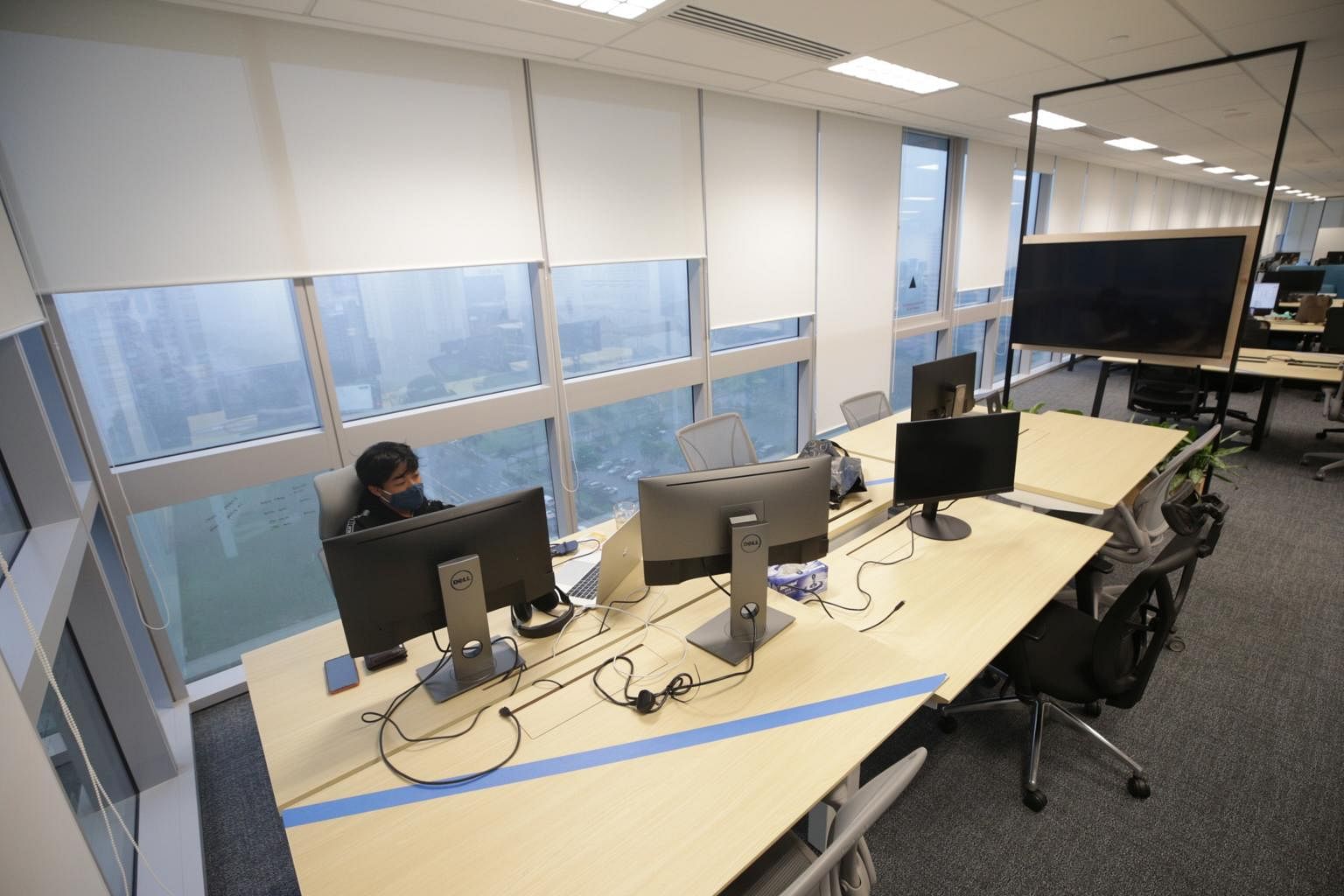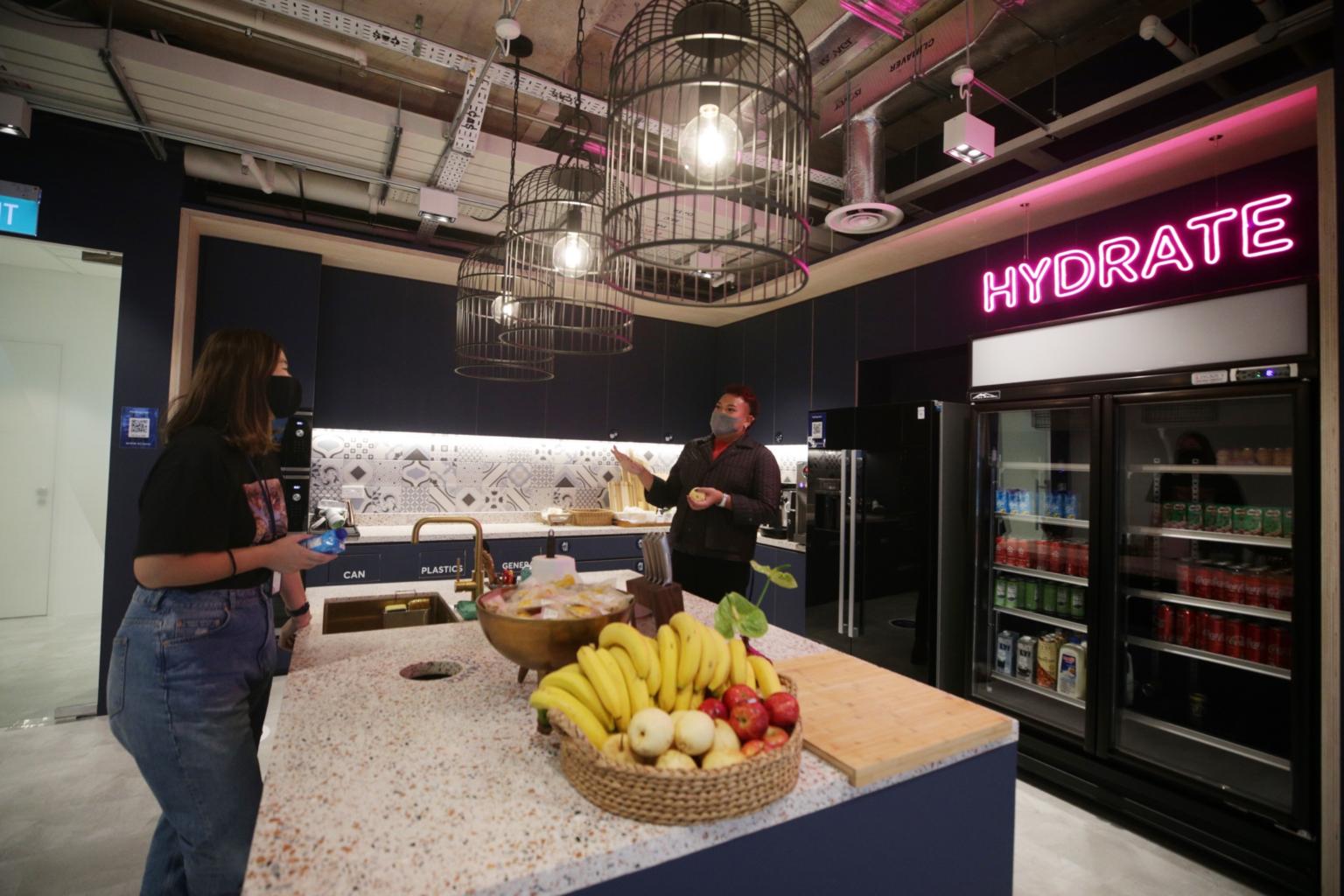Remittance company redesigns new office to allow employees to 'curate their own journey'
Sign up now: Get ST's newsletters delivered to your inbox
SINGAPORE - Art works, massage pods and "neighbourhoods" in the office with no assigned seats for individual employees - these are some of the ways Wise, formerly TransferWise, is enticing more of its workers back to the office after a prolonged period of working from home.
As more flexible work hours become entrenched in some companies, and employees are given the latitude to decide which days and for how long to be in office, the remittance company redesigned its new office space with demands of a post-Covid-19 world taken into account.
Wise moved into its Paya Lebar premises in January, and has made it a point to make sure the office space is more conducive for collaboration and face-to-face meetings - a key motivation for staff to return to the office going forward.
Among these are a well-stocked fridge and collaborative pods where staff working on the same project can retreat to discuss their work.
Each of these pods are linked up to large display screens that allow staff to interact with others who are not in Singapore or the office. Safe distancing markers and hygiene stations with hand sanitisers are in place, concessions to the demands of a pandemic that has changed how people work and think about work.
Mr Ilyazid Ilias, the workplace lead of APAC Wise Singapore, told The Straits Times on Monday (April 5) that the new workspace allows employees to "curate their own journey" within it.
He hopes that the aesthetics will help his staff feel a "sense of relief" as they enter the office, and encourage them to return to brainstorm with their colleagues, regaining the sense of human connection that might have been lost amid the remote working arrangements in the past year.
He said: "People are not going to come into the office to do solitary work. We used that as a foundation in the design of our office. Our employees have been asking for more meeting rooms and so we have more communal spaces with pantries that are well-located."
Wise also does not assign individual seats to its employees, choosing instead to allocate areas - fitted with furniture - to those working on projects in the same countries to congregate.
This encourages intermingling and staff can meet where they find it most comfortable, he said.
During the design of the office, Mr Ilyazid engaged his friend to produce art works that reflect the company's work and identity.
There is a space dedicated for employees to relax. It has two massage chairs - cordoned off by curtains for privacy - and sleeping rooms that have beds and blankets. All are available in the hope of attracting staff who have got used to their homes in the past year to return to the office.


Ms Narita Cheah, co-founder and director of Paperspace Asia which helped design the office, said companies now require more collaborative spaces.
Whereas in the past, 70 per cent of office space was skewed towards individual use, employers are now finding it increasingly necessary to make at least half of it communal.
"There is of course some resistance because of the traditional mindset. But needing more spaces for collaboration is something employers can no longer ignore or talk their way out of," she said.


